Porous frameworks for uranium extraction from seawater
Abstract
The utilization of uranium (U) fission energy as a high-density, clean power source plays a pivotal role in mitigating greenhouse gas emissions. Uranium extraction from seawater exhibits superior environmental friendliness compared to terrestrial uranium mining, as it avoids substantial generation of radioactive waste and harmful chemicals. However, conventional adsorbents such as fiber, polymer, and biomass materials exhibit slow adsorption rates and low ion selectivity. Porous frameworks with large inner surface, full host-guest interaction, and site utilization are utilized to improve uranium absorption performance. Consequently, devising and synthesizing materials that enable efficient and cost-effective extraction of U(VI) from seawater poses a formidable challenge. Recently, there has been a considerable surge in academic interest regarding the synthesis and design of porous frameworks. By integrating experimental data, spectroscopic analysis, and theoretical calculations, we have conducted an extensive investigation into the actual performance, underlying principles, and practicality of conventional materials (such as fibers) and novel porous materials serving as adsorbents, photocatalysts, and electrocatalysts for U(VI) extraction from seawater.
Keywords
INTRODUCTION
Uranium, as an essential component in the nuclear industry, has experienced a surge in demand following the expansion of the sector[1-3]. Presently, uranium primarily originates from uranium octoxide (U3O8) within uranium ores[4]. Globally, confirmed accessible uranium-ore reserves exceed six million tons[5], which is estimated to meet human requirements for approximately a century[6]. However, terrestrial uranium extraction incurs high costs and substantial environmental pollution[7], highlighting the strategic importance of identifying and harnessing unconventional uranium resources for the nuclear industry. The vast oceans harbor abundant chemical resources, with estimated uranium reserves in seawater towering at 4.5 billion tons[8,9], nearly a thousandfold greater than those on land[10]. Additionally, owing to the high mobility of seawater, uranium extraction from marine sources poses considerably less ecological impact than terrestrial mining. Consequently, the advancement of technologies for extracting uranium from seawater is deemed crucial.
The pH of seawater ranges from 8.0 to 8.3[4], creating an environment conducive to the formation of uranium complexes with carbonate ions in seawater, mainly uranyl tricarbonate ions ([UO2(CO3)3]4-)[11]. Despite the substantial uranium reserves in seawater, the actual implementation of seawater uranium extraction remains challenging. The uranium concentration in seawater is extremely low, at only 3.3 ×
Over the last decade, remarkable progress has been made in materials and technologies applicable to uranium, U(VI), extraction from seawater[20,21]. Herein, the applications of traditional and novel porous materials in seawater uranium extraction processes such as adsorption[22], photocatalysis[3], and electrocatalysis[23] are described in detail. This provides an important reference for the future development of novel functionalized materials and processes. Finally, the challenges and opportunities encountered by materials and technologies applied in uranium extraction from seawater are comprehensively analyzed [Scheme 1].
ADSORPTION
Nonporous adsorbents
Fibers
Electrochemically extracted fiber materials exhibit notable characteristics such as water stability, processability, low cost, and low environmental pollution, rendering fiber-based adsorbents as viable technologies widely used for adsorption purposes. In addition, these fiber materials can undergo surface modification with functional groups to enhance their specificity and thus improve their adsorption properties. For instance, Wang et al. (2018) conducted an amidoximation process on poly(iminodioxime)-prepared poly(iminodimethylene), yielding poly(imide dioxime) nanofibers (PIDO NFs) boasting abundant active sites, high water stability, and favorable mechanical properties[24] [Figure 1A]. These fibers exhibited an adsorption capacity of 951 mg·g-1, with excellent performance validated in real seawater tests (8.74 mg·g-1 in seawater for eight weeks). Similarly, Rostamian [Figure 1B] converted chitin derived from shrimp shell wastes into chitosan and spun it to fabricate chitosan nanofibers with a uranyl ion adsorption capacity of 110 mg·g-1[25]. Additionally, Xu et al. (2020) synthesized poly(amidoxime) (PAO) fiber (AO-OpNpNc) which showed a synergistic chelating effect between PAO and uranyl ions as analyzed by extended X-ray absorption fine structure (EXAFS) results[26]. In natural seawater, amidoxime (AO)-OpNpNc exhibited an adsorption capacity of 17.57 mg·g-1. Wang et al. (2020) [Figure 1C] prepared an amidoximed cellulose adsorbent via the post-modification, showing an adsorption capacity of 52.88 mg·g-1[27]. In addition, this modified cellulose was transformed into a thin film, achieving uranium adsorption of 1.22 mg·g-1 after treating 10 L in dynamic seawater simulations. Ahmad et al. (2020) [Figure 1D] prepared magnetic adsorbents incorporating –SO3H and –COOH groups into magnetic tubular nanofibers (FMTnF–SO3H and FMTnF–COOH), exhibiting adsorption capacities of 955.7 and 980.4 mg·g-1 for uranyl ions, respectively[28]. Seko et al. (2004) employed the amidoximation to prepare AO fiber adsorbents[29]. These adsorbents, when drenched with tartaric acid as the desorbent, maintained 80% of their adsorption activity even after five adsorption-desorption cycles.
Figure 1. (A) Schematic of the PAN and PIDO NFs[24], Copyright 2018, Wiley-VCH; (B) Schematic diagram of preparing chitosan nanofibers from shrimp shell waste[25], Copyright 2019, Elsevier B.V; (C) Preparation for PAO-CFs[27], Copyright 2020, Elsevier Ltd; (D) Systematic depiction of the reaction pathway for the preparation of FMTnF–SO3H and FMTnF–COOH[28], Copyright 2020, Elsevier Ltd. PAN: Polyacrylonitrile; PIDO NFs: poly(imide dioxime) nanofibers; PAO: poly(amidoxime).
Porous solids can be prepared as fiber materials with large specific surface areas and porous structures, and facilitate the modification of functional groups in the skeleton for uranium selective adsorption; meanwhile, with high mechanical strength, they occupy an important position in the field of uranium adsorbent materials. Although a large number of functionalized polymer fibers have been reported, the performance of uranium extraction is still unsatisfactory, and the large-scale application of natural seawater uranium extraction has not been achieved. Future research still needs to carry out the following three aspects: the uranium adsorption capacity and selectivity of the materials in the actual seawater system do not meet the requirements for large-scale application. Through artificial intelligence technology (such as machine learning) to screen the appropriate carrier and modification of functional groups, the synthesis of uranium adsorbents with selective complexation capability improves the adsorption selectivity of the adsorbent on the uranium; the adsorbents can also be modified through the bifunctional and multifunctional functional groups of polymer fibers, or through hybridization with inorganic nano-materials to introduce the surface charge, porous structure, or to increase the specific surface, so as to enhance the adsorption capacity of uranium. As Long-term immersion in seawater will cause the mechanical properties of fiber materials to deteriorate, strong mechanical properties of polymer fiber materials are the key to the scale of application of seawater uranium extraction technology. Due to the complicated marine environment, the adsorbent materials for uranium extraction from seawater are easily damaged by the microorganisms in the ocean. The development of marine antimicrobial fiber materials through the application of functional coatings and surface charge assembly can improve the reusability of uranium extraction fiber adsorbent materials, with a view to improving the economy of seawater uranium extraction.
In contrast, membrane technology has become a potential choice for uranium wastewater treatment because of its high efficiency, economy, and environmental protection. This technology mainly includes microfiltration, ultrafiltration, nanofiltration, and reverse osmosis methods. Among them, ultrafiltration and nanofiltration membranes are most commonly used. Ultrafiltration membranes can effectively remove uranium ions and radionuclides, and nanofiltration membranes can remove radionuclides, heavy metals, and organic matter. At present, membrane technology has made a series of research progress in uranium wastewater treatment in the nuclear industry. Firstly, researchers have achieved efficient removal of uranium ions and radionuclides by optimizing the selection of membrane materials and regulation of membrane separation process parameters. Secondly, the removal of heavy metals and organics by the membrane has been improved through the development of new membrane materials. In addition, the use of double-layer structure and ceramic materials and other technical means not only improves the stability and anti-pollution ability of the membrane but also extends its life. At the same time, membrane technology in the nuclear industry uranium wastewater treatment also faces some challenges. The high concentration of radionuclides in wastewater can easily cause membrane contamination and reduce the flux and service life of the membrane. Moreover, membrane technology has high economic costs and energy consumption in large-scale industrial applications, which need to be progressively improved. In the future, researchers can advance the application of membrane technology in uranium wastewater treatment in the nuclear industry through the following aspects. First, continue to optimize the performance of membrane materials, and improve the removal effect of membrane on radionuclides and other harmful substances in wastewater; second, carry out basic research on the membrane separation process, in-depth investigation of membrane deposition and membrane contamination mechanism, and enhance the stability of the membrane and anti-pollution ability. In addition, further improve the design of wastewater treatment systems, and improve the economy and sustainability of membrane technology.
Polymer
The first amidoximation method was produced by Lossen and Schifferdecker in 1873 by reacting hydrogen cyanide with hydroxylamine, effectively interconverting the functional groups of nitrile and hydroxylamine. While initially acclaimed for their excellent chelating properties toward metal ions, their widespread use remained limited to heavy metal ion recovery, overlooking potential uses in energy and environmental applications.
Among various AO-based materials, polymeric adsorbents have been studied and are important adsorbents for seawater uranium extraction owing to their resistance to mechanical abrasion, lightweight nature, and high plasticity in terms of shape and length. These adsorbents are prepared through suspension polymerization by dissolving acrylic wax and vinyl concentrate in a medium-concentration solution, followed by dispersion in water. Subsequently, copolymerization of polypropylene eye and polyvinyl benzene (AN-CO-DVB) is performed after thermal initiation. Hydroxylamine is then employed to functionalize the cyano groups into AO groups. This amidoximation method holds an important position in seawater uranium extraction research and continues to be used to this day.
Biomass
Biomass exhibits superior biocompatibility compared to polymers[30]. Some biomass adsorbents are inexpensive, chitosan for instance, a biomass with abundant –OH and –NH2 group. However, deficiencies in porosity[31] and mechanical properties[32] limit its performance under certain conditions. Therefore, it is often modified to enhance capacity and selectivity in specific operating scenarios. Uranium adsorption by the biomass-based material is considerably improved by introducing AO groups to it[33], elevating the theoretical maximum adsorption from 117 to 372 mg·g-1.
In the future, biomass adsorbents are expected to exhibit enhanced adsorption capacity and selectivity, accelerated adsorption kinetics, increased reusability, and improved antimicrobial and acid-resistant properties. Such advancements will enable these materials to thrive in complex marine environments and harsh wastewater treatment conditions.
Conventional porous adsorbents
Mesoporous carbon
The hydrophobic surface of the pristine mesoporous carbon material renders it unsuitable for uranyl ion adsorption from aqueous systems. Subsequent chemical modification improves the hydrophilicity of the mesoporous carbon while imparting uranium adsorption properties to the material. In a successful demonstration, 4-aminoacetophenone oxime was grafted onto CMK-5 in a mixed solution of
Nanotube
Besides mesoporous carbon, halloysite nanotubes (HNTs) can be used for seawater uranium extraction studies. HNTs are rich in hydroxyl groups, and their large internal pore size allows for effective functionalization. Zhao et al. (2019) [Figure 2] modified HNTs using silane coupling agents, specifically vinyltriethoxysilane (VET) and acetylene (AN)[35]. Subsequently, the cyano groups were amidoximized to complete the preparation of uranium extraction material, resulting in a two-sided AO structure. In simulated seawater containing 8 ppm of uranium, this material exhibited a saturated adsorption capacity of 295.66 mg·g-1. Furthermore, the adsorption capacities of the material in real seawater after five and 30 days of adsorption in filtered seawater were measured to be 5.70 and 9.01 mg·g-1, respectively.
Figure 2. Schematic of the fabrication process of AO-HNTs[35]. Copyright 2019, Wiley-VCH. AO: Amidoxime; HNTs: halloysite nanotubes.
Novel porous frameworks
Metal-organic frameworks
Metal-organic frameworks (MOFs) are long-range ordered crystalline porous materials formed by connecting inorganic metal nodes (e.g., metal ions or clusters) to organic connectors via ligand bonds[36,37]. Traditional MOF preparation methods include solvothermal, electrochemical, and microwave techniques. Notably, MOFs can be precisely tuned and tailored for specific applications, allowing for bespoke structure design. For different applications, MOFs are post-modified to obtain specific functionalities by changing organic connectors, incorporating specific functional groups[38], or introducing structural defects[39]. In addition, leveraging MOFs in conjunction with other materials yields MOF-based nanomaterials with enhanced properties. Given these outstanding properties, MOFs hold great potential in seawater uranium extraction endeavors.
Su et al. (2018) [Figure 3A] utilized a large amount of Co–OH in zeolitic imidazolate framework (ZIF)-67(Co) to obtain a high U(VI) removal rate (> 99%) and an ultrahigh adsorption (1,683.8 mg·g-1)[40]. Material of Institute Lavoisier (MIL)-101(Cr)[41] exhibits promise in adsorption owing to its high stability to air, temperature, and chemicals. Zhang et al. (2016) utilized the open metal sites in MOF-74(Zn) for efficient uranyl ion capture (360 mg·g-1), whereas MIL-101(Cr) demonstrated highly selective uranyl ion recovery
These examples demonstrate the potential and versatility of MOFs for uranium extraction from seawater. While MOFs have been extensively studied for U(VI) capture from seawater, attention should be directed toward addressing the following aspects to meet practical application challenges: (1) ensuring sufficient aqueous and chemical stability; (2) facilitating easy recycling; and (3) lowering synthesis costs.
Covalent organic frameworks
In the past decades, porous frameworks have received great attention for their diverse applications in catalysis, gas storage, separation technology, energy conversion, and biomedicine. First reported in 2005, covalent organic frameworks (COFs) represent a class of porous organic materials characterized by regular network structures. Their unique ability to construct two or three-dimensional network structures from predesigned organic monomers via strong reversible/irreversible covalent bonds has propelled them to the forefront of materials science research. These unique structural properties endow COFs with high specific surface areas, tunable pore sizes, porosity, and specific chemical functionalities. COFs exhibit better thermal and chemical stability compared to conventional inorganic pore materials such as zeolites or MOFs. They are rich in donor atom groups (S, N, O, and P) such as hydroxyl, carboxyl, AO, amine/imine, amide, and oxime imidazole that can interact with uranyl ions[48].
While COFs can be synthesized directly by selecting structural units containing specific functional groups[49], the limited variety of structural unit types often results in few active sites in synthetic COFs, which greatly restricts their application in uranium extraction from seawater. Therefore, active sites are often introduced into the COF backbone through post-synthesis modification[50] to obtain excellent seawater uranium extraction properties. However, the slow rate of functionalized modification and reduced pore size pose challenges. Phosphorus heterocycle-based COF (MPCOF), a two-dimensional ultramicroporous structure synthesized by Zhang et al. (2016) (MPCOF), exhibits narrow pore size distribution and high crystallinity, demonstrating reasonable selectivity for uranium even under strongly acidic conditions[49]. The adsorption mechanism mainly involves intraparticle diffusion and size screening effects. Zhang et al. (2018) also developed covalent phosphazene-based framework-T (CPF-T), which exhibited notable uranium adsorption performance under strongly acid conditions[51] [Figure 4A]. The mechanism is believed to involve uranyl ion coordination with five water molecules to form a hydrate, with the pore size of CPF-T effectively matching U(VI) uptake. Dp-COF[52], characterized by a unique bicyclic pore structure bolstering uniformly distributed carboxyl groups, demonstrates a distinctive affinity and selectivity for U(VI) due to its pore size closely matching that of the uranyl ion hydrate. These COFs[48], developed by Bai., use urea, thiourea, and thiourea groups, exhibiting a strong affinity for U(VI). The effectiveness of different donor atoms (O and S) in these COFs has also been emphasized.
Guo et al. (2021) synthesized TpBpy and TpPy [Figure 4B] using 2,2’-dipyridyl-5,5’-diamine (Bpy) and pyridyl-2,5’-diamine (Py) as the core skeleton[53]. Both TpBpy and TpPy showed commendable adsorption performance for U(VI), with 115.45 and 291.79 mg·g-1. COF-IHEP-1 and COF-IHEP-2, synthesized by Yu et al. (2019), efficiently and selectively extracted U(VI), with COF-IHEP-1 demonstrating notable adsorption capacity (112 mg·g-1) even in 1 M nitric acid solutions containing numerous competing metal cations[54]. Li et al. (2015) synthesized COF-HBI by grafting 2-(2,4-dihydroxyphenyl)benzimidazole (HBI) onto COFCOOH via esterification[55]. COF-HBI exhibited an adsorption capacity of 211 mg·g-1 for U(VI) at pH = 4.5. Xiong et al. (2019) prepared [NH4]+[COF-SO3]- enriched in both [NH4]+ and −SO3- through amination of COF-SO3H, achieving an increase in adsorption capacity (851 mg·g-1, 2.4-fold)[50].
These examples highlight the versatility and effectiveness of COF materials for the adsorption of uranyl ions across different environments, demonstrating their potential for nuclear wastewater treatment and uranium recovery from seawater.
Porous aromatic frameworks
Porous aromatic framework (PAF) materials are novel porous nanomaterials composed of light atoms (C, H, O, and N) through irreversible cross-coupling reactions. These materials feature rigid building blocks, topologically oriented structures, short-range order, excellent stability, enhanced electrochemical activity, and inherent porosity. Therefore, they find extensive applications in adsorption, separation, and catalysis. In recent years, several scholars have already applied modified PAFs for uranium extraction from seawater. The enhanced uranium adsorption capacity, rapid uranium adsorption kinetics, excellent uranium selectivity, and excellent reusability of these modified PAFs underscore their great research potential and application value in seawater uranium extraction.
Li et al. (2017) grafted AO ligands onto PAF-1 [Figure 5A] with a stable structure and large surface area, resulting in the synthesis of PAF-1-CH2-AO adsorbent capable of capturing uranium up to 304 mg·g-1[56]. The maximal uranium capture was confirmed via EXAFS fitting, revealing neighboring AO groups that synergistically chelate uranyl ions. Additionally, experimental analysis of PAF-1-CH2-AO in simulated seawater (uranium concentration of 7.05 μg·L-1) demonstrated an enhanced uranium capture capacity of
Figure 5. (A) Schematic of the preparation procedure of PAF-1-CH2AO[56], Copyright 2017, American Chemical Society. (a) AcOH,
Shen et al. (2019)[60] synthesized a porous aromatic skeleton material P-C4 [Figure 5B] by grafting PPN-6, which was capable of adsorbing uranium from alkaline solutions. An adsorption kinetic study revealed that the adsorption kinetics of P-C4 were consistent with a quasi-secondary kinetic model, indicating a chemisorption process. It was demonstrated that uranium enters the material pores by exchanging chlorides in the form of uranyl tricarbonate in the reaction. Uranium adsorption experiments on P-C4 revealed that the uranium exchange capacity could reach up to 670 mg·g-1, and the partition coefficient Kd for uranium still exceeded 105 mL·g-1 in a high concentration of interfering ions environment.
Yuan et al. (2018) synthesized a series of molecularly imprinted PAFs (MIPAFs) containing salicylaldoxime ligands via Heck coupling reaction and molecular imprinting technique, which still possessed a uranium adsorption capacity of 35.44 mg·g-1 when tested in simulated seawater[61]. Yuan et al. (2019) used a molecular coordination template to assemble the salicylaldoxime ligand onto PAF-1 to synthesize MISS-PAF-1 with a maximum uranium adsorption of 253 mg·g-1[62]. The adsorption of uranyl ions on MISS-PAF-1 was shown to be monolayer chemisorption through Langmuir model fitting, and the adsorption mechanism was analyzed via Fourier transform infrared spectroscopy and XPS, revealing that the adsorption mechanism was through –OH and –C=N groups coordinated with uranium to form U–O and U–N coordination bonds for chemisorption. In addition, the uranium adsorption amount of MISS-PAF-1 in Bohai Sea seawater (with a uranium concentration of 4.4 μg·L-1) reached a sizable amount of 5.79 mg·g-1, suggesting its promising practical application.
The current research on uranium extraction from seawater using PAFs is still in its primary stages and faces challenges such as low uranium adsorption concentration of 3.3 μg·L-1 in seawater, interference from high concentrations of competing ions, and contamination by microorganisms. Additionally, PAF adsorbents cannot be readily scaled up for industrialized production. Future research efforts should focus on the following aspects: (1) enhancing uranium selectivity; (2) improving the efficiency of uranium adsorption; (3) advancing the understanding of the adsorption mechanism; and (4) reducing the synthesis cost of PAFs.
Polymers and porous materials are two of the most important types of materials currently used to extract uranium from seawater. They reflect different unique features in synthesis, characterization, and application, and their respective advantages and disadvantages in practical production.
For porous materials, thanks to their regular structure and better crystallinity, they have unique advantages in molecular imprinting, host-guest interactions, and other adsorption types. Different organic porous materials have distinct pore structures and can accommodate varying types of ions. The rational design of the pore structure of adsorbents is conducive to the improvement of adsorption selectivity. The adsorption sites of porous materials are more clearly defined, and the adsorption mechanism of porous materials on uranyl ions can be more clearly understood through pore modification or surface modification, assisted by theoretical calculations. However, the reversible formation-breakage equilibrium of covalent or ligand bonds and the instability of metal hydroxide precipitation equilibrium also lead to the poor stability of materials such as MOF, COF, etc., and the stability and recycling of MOF, COF, etc. decrease faster in certain solutions with strong polarity, strong acids, strong bases, high ionic strengths, and high bio-pollution, and they can not form a good and stable recycling. This creates a considerable obstacle to the commercialization of porous materials as uranium extractants.
For polymers, the same as polymer materials, the chemical bonds connecting the monomers are more stable compared to those in inorganic-organic hybrid materials, and the absence of metal components contributes to higher chemical stability and mechanical strength of polymers. Additionally, polymers exhibit better recycling performance and higher potential for extended service life. At the same time, because the C–C bond can rotate around the bond axis, chain polymers generally have a high degree of flexibility, which makes its compatibility with the adsorbed target ions greatly improved, the design of the imprinting site will be more convenient, the site and the target ions better compatibility. In addition, polymers can form different structures by crosslinking, etc., such as hypercrosslinked polymers (HCPs), which have been widely used in uranium extraction from seawater. However, for polymers, structural uncertainty is still an important factor limiting their commercialization. Variations in the conditions under which the polymerization reaction occurs, such as temperature, concentration, time, etc., can result in large differences in polymerization degree, bonding modes, morphology, etc. This can lead to considerable uncertainties in the properties of polymers, thus affecting the investigation of the adsorption process and its mechanism.
OUTFIELD-ASSISTED URANIUM EXTRACTION
Photocatalyst reduction
Photocatalysis involves the conversion of light energy into chemical energy using ultraviolet or visible light irradiation to promote the synthesis and decomposition of organic matter. In the absence of suitable electron- or hole-trapping agents, absorbed light energy dissipates as heat owing to carrier recombination. Valence band (VB) holes act as strong oxidizing agents, while conduction band (CB) electrons act as strong reducing agents. Most organic photodegradation utilizes the strong oxidizing ability of holes either directly or indirectly.
To reduce U(VI) to U(IV), a semiconductor with a CB bottom potential of < 0.411 V (vs. normalized hydrogen electrode) is required [Figure 6A and B]. Only a few photocatalysts, such as TiO2 and g-C3N4[1,3,63], have been shown to realize the photoreductive extraction of U(VI). Zhong et al. (2021) and Xu et al. (2018) also developed MOFs and COFs suitable for the photocatalytic extraction of uranium[64,65]. Practical applications have revealed that pure intrinsic semiconductor photocatalysts have the disadvantages of high photogenerated charge recombination rates and poor catalytic efficiency. Consequently, researchers have begun employing various technical methods to modify these semiconductors. For example, Li et al. (2017) enhanced the photocatalytic activity under UV irradiation by 19.3 times compared to TiO2 by compounding Fe3O4 and graphene with TiO2 to construct a TiO2-graphene-Fe3O4 complex, achieving enhanced photostability[66]. Similarly, Wu et al. (2021) showed that compositing ZnS with the g-C3N4 phase resulted in ZnS@g-C3N4 photocatalysts with a wider light absorption range compared to pure g-C3N4[67]. The newly obtained ZnS@g-C3N4 photocatalyst has a wider light absorption range and exhibited 4.34 times higher photocatalytic activity for UO22+ than the previous version.
Figure 6. (A) The simultaneous photoreduction of uranium(VI) and photooxidation of arsenic(III) using the g-C3N4/TiO2 catalyst[1], Copyright 2018, Elsevier B.V; (B) Schematic representation of the possible mechanism for photoreduction of U(VI) via CNCD[63], Copyright 2019, American Chemical Society. CNCD: Porous graphitic carbon nitride.
Besides the effect of the intrinsic properties of the semiconductor on photocatalysis, researchers have found that the reaction can be promoted by adding additional substances into the catalytic system or by modulating the reaction conditions. For example, Salomone et al. (2013) found that the reduction efficiency of uranyl ions in acetic acid solution was four times higher than that in nitric acid solution[68]. Wang et al. (2015) demonstrated that sodium formate could promote the adsorption of U(VI) on the TiO2 surface[69]. Liu et al. (2023) selected ZnS and WO3 to construct a Z-type heterojunction, where ZnS and WO3 retained the strongly reducing photogenerated electrons in the CB of ZnS (with the reduction potential reaching
However, current photocatalytic uranium extraction technology has certain limitations. For example, the current efficiency of photocatalytic uranium extraction is low and requires prolonged exposure to a high-intensity light source to complete the reaction. In addition, it is only feasible for low-concentration uranium solutions and cannot treat high-concentration wastewater. Moreover, this method is not universally applicable; photocatalytic uranium extraction is only applicable to a specific water environment and for certain chemical forms of uranium. The presence of other organic substances or metal ions in the water may lead to competition with the catalyst, thereby diminishing the efficiency of uranium extraction.
Electrochemical extraction
Physical/chemical adsorption is currently a commonly used method for uranium extraction from seawater; however, it still has limitations. The low uranium concentration in seawater, coupled with the limited specific surface area and active sites of adsorbent materials, restricts their capacity for uranium capture, hindering its effective extraction. Moreover, the competitive adsorption of other ions in seawater can affect the performance of the adsorbent. Electrochemical uranium extraction has received much attention owing to its substantial adsorption capacity and fast adsorption rate. Importantly, during the electrochemical reduction reaction, hexavalent uranium ions are reduced to tetravalent uranium dioxide and deposited on the electrode surface, thereby circumventing mutual repulsion between ions with the same charge. Compared with traditional adsorption techniques, electrocatalytic techniques offer several advantages: (1) they enable rapid removal at low U(VI) concentrations; (2) continuous reduction of U(VI) to a solid minimizes material deactivation; (3) high selective reduction of U(VI) can be achieved using different potential differences of various elements.
Liu et al. (2017) proposed [Figure 7A] the half-wave rectified alternating current electrochemistry (HW-ACE) method for uranium extraction[71]. This method uses an electric field to direct the migration of uranyl ions, which greatly improves the diffusion rate. Electrodeposition is utilized to neutralize charged uranyl ions, thereby mitigating Coulombic repulsion, while alternating current avoids unnecessary adsorption of species and electrolysis of water. Kinetic experiments revealed a 2.5-fold higher uranium extraction rate for HW-ACE compared to the adsorption method. Ion selectivity experiments in real seawater also confirmed the superior uranium ion selectivity of the HW-ACE method over the adsorption method. Moreover, the electrochemical method exhibited a much higher desorption efficiency of uranyl ions (96.2%) compared to the adsorption method (46.9%).
Yang et al. (2021) synthesized [Figure 7B] ZIF-8 and subsequently coated its surface with a potassium-tannic acid (TA) coordination polymer[72]. K+ ions in the TA polymer were then exchanged for Fe3+ ions through ion exchange to obtain ZIF-8@Fe-TA material. This material demonstrated efficient uranium extraction performance (128 mg·g-1) in natural seawater and maintained its structure and performance after ten cycles.
Liu et al. (2022) obtained In-Nx-C-R by introducing flexible amidoxime oxime[73]. This was achieved by exchanging K+ for In3+ in TA polymers encapsulated in ZIF-8, followed by pyrolysis and treatment with a nitric acid/sulfuric acid mixture and hydroxylammonium chloride. In 10 ppm simulated seawater,
In seawater uranium extraction technology, in addition to the traditional chemical adsorption, the use of applied fields (e.g., photocatalytic, electrocatalytic) to improve the performance of uranium extraction for certain specific materials is a direction worthy of in-depth study [Table 1]. Traditional adsorption methods (physical and chemical adsorption) are constrained by the limited specific surface area of the adsorbent, adsorption sites, kinetic rates, and competitive adsorption generated by the widespread presence of other ions. By introducing external energy (light energy, electrical energy), the kinetic process of adsorption is somewhat altered, thus enhancing the uranium adsorption performance[108]. In electrocatalytic uranium extraction, uranyl ions are enriched on the electrode surface after reduction, and their interactions with other cations are weakened by the electric field, which significantly enhances the uranium adsorption capacity, adsorption rate, and minimum adsorption concentration of the material. In order to maximize this enhancement, it is necessary to design adsorbents with appropriate structures, provide a sufficiently strong and continuous electric field or light source, and create suitable environments with various operating conditions for multiple application scenarios (uranium elemental form, aqueous solution composition, etc.), so as to achieve higher adsorption effects and economic benefits while controlling production costs[9,109-111].
Performance evaluation of functional materials for uranium recovery from seawater
| Materials | Capture capacity (mg·g-1) | Time | Condition | Methods | Ref. |
| HW-ACE on AO-functionalized electrode | 0.002 | / | / | Electrocatalysis | [71] |
| Zn(HBTC)(L)(H2O)2 | 0.53 | 1 min | 6 ppb simulation seawater | Adsorption | [74] |
| Co-SLUG-35 | 1.03 | / | 5.35 ppb natural seawater | Adsorption | [75] |
| POP-AO | 1.32 | 56 days | Seawater | Adsorption | [58] |
| UiO-66-AO | 2.68 | 3 days | Bohai seawater sample | Adsorption | [45] |
| POP3-AO | 3.1 | 56 days | Seawater | Adsorption | [76] |
| PVDF electrosorption | 3.4 | 5 h | Batch electrosorption | Electrocatalysis | [77] |
| POP1-PO3H2 | 3.82 | 56 days | Seawater | Adsorption | [78] |
| CPP | 4.15 | 10 days | / | Photocatalysis | [79] |
| POP-oNH2-AO | 4.36 | 56 days | Seawater | Adsorption | [58] |
| GZA | 4.974 | / | 3.3994 ± 0.143 ppb natural seawater | Adsorption | [80] |
| COF-HHTF-AO | 5.12 | 25 days | 1 ppm uranium | Adsorption | [81] |
| KTG | 5.19 | 10 days | / | Adsorption and photocatalysis | [82] |
| UiO-66-NH-(AO) | 5.2 | 8 days | Natural seawater | Adsorption | [83] |
| PT-BN-AO | 5.78 | 27 days | / | Adsorption and photocatalysis | [84] |
| MISS-PAF-1 | 5.79 | 56 days | Seawater | Adsorption | [62] |
| MS@PIDO/Alg | 5.84 | 56 days | Seawater | Adsorption | [85] |
| BD-TN-AO | 5.9 | 5 days | 10 ppm uranium | Adsorption and photocatalysis | [86] |
| DNA-UEH | 6.06 | 6 days | Seawater | Adsorption | [87] |
| NDA-TN-AO | 6.07 | 27 days | 50 L | Adsorption and photocatalysis | [88] |
| AF Anti-COF | 6.64 | 28 days | 15 L | Adsorption | [89] |
| PPH-OP | 7.12 | 21 days | Seawater | Adsorption | [90] |
| MUUim | 7.35 | 16 days | Natural seawater | Adsorption | [91] |
| PAO/Alg NFs | 8.42 | 56 days | Seawater | Adsorption | [92] |
| PIDO NFs | 8.7 | 56 days | Seawater | Adsorption | [24] |
| PAF-CS | 8.92 | 60 days | 3.3 ppb, 5 L·min-1 | Adsorption | [59] |
| AO-PIM-1 | 9.03 | 28 days | Seawater | Adsorption | [93] |
| Zn2+-PAO | 9.23 | 28 days | Seawater | Adsorption | [94] |
| PAO PNMs | 9.35 | 35 days | Seawater | Adsorption | [95] |
| SMON-PAO | 9.59 | 56 days | Seawater | Adsorption | [96] |
| ZIF-67 | 10 | / | 500 ppb simulation seawater | Adsorption | [97] |
| Tp-DBD | 10.31 | 8 days | / | Photocatalysis | [98] |
| BP-PAO fiber | 11.76 | 56 days | Sunlight, seawater | Adsorption | [99] |
| SSUP | 12.33 | 3.5 days | Seawater | Adsorption | [100] |
| PPA@MISS-PAF-1 | 13 | 90 days | Seawater | Electrocatalysis | [101] |
| MIGPAF-13 | 16 | 56 days | Seawater | Electrocatalysis | [102] |
| AO-OpNpNc fiber | 17.57 | 30 days | Seawater | Adsorption | [26] |
| [NH4]+[COF-SO3]- | 17.8 | 7 days | 10 ppb uranium | Adsorption | [50] |
| MOF 3 | 32 | 1 h | 100 ppm simulation seawater | Adsorption | [44] |
| COF-TpDb-AO | 127 | 90 min | 20 ppm uranium | Adsorption | [103] |
| MOF 2 | 188 | 1 h | 100 ppm simulation seawater | Adsorption | [44] |
| MPN-based membrane | 27.81 | / | Seawater | Adsorption | [104] |
| Anti-UiO-66 | 4.62 ± 0.09 | 30 days | Natural seawater | Adsorption | [105] |
| BHMS | 5.14 ± 0.1 | 12 days | 500 mL·min-1 | Photocatalysis | [106] |
| ZIF-67/SAP 0.45 | 6.99 ± 0.26 | 35 days | Natural seawater | Adsorption | [107] |
CONCLUSION AND OUTLOOK
Porous frameworks have demonstrated their unique advantages across several areas. Their porous structure imparts excellent adsorption capacity for a wide range of substances, especially heavy metal ions and organic pollutants. Moreover, these materials usually maintain a stable crystal structure, ensuring consistent performance across diverse environmental conditions. In addition, precise tuning of pore size, shape, and surface properties of these materials is achievable through tailored synthesis conditions to meet varied application requirements. However, porous framework materials encounter several challenges in the process of uranium extraction from seawater. First, the complexity of synthesis hampers industrial-scale production, contributing to elevated costs and restricting widespread application. Second, material morphology limitation is also a problem that needs to be solved. The porous framework material usually exists in the form of powder, which brings many inconveniences in the practical application of large-scale seawater extraction of uranium. To solve these problems, researchers have tried to process the powder into the morphology of membranes and fibers for practical applications. Porous framework materials also face the challenge of biodeposition in seawater uranium extraction. Therefore, the adsorbent material must exhibit an ultrafast ion capture rate, especially during the initial stages of uranium extraction. Besides adsorption methods, researchers have proposed external field-assisted methods, including electric and light fields, which offer distinct advantages in seawater uranium extraction. Electric fields can accelerate the ion trapping process and improve ion adsorption efficiency through the directional movement of charged particles. In addition, electric fields can regulate the charge distribution on the surface of the material to further optimize its adsorption performance. Conversely, light fields can enhance the activity of the adsorbent and improve its adsorption capacity for uranium ions by stimulating photosensitive groups in the material or generating photothermal effects. Additionally, the light field has the advantages of environmental protection and energy saving, aligning with the requirements of sustainable development.
Despite the high application value, electric and light fields in uranium extraction from seawater encounter challenges in practical implications and engineering applications. For example, achieving stable, efficient, and cost-effective application of electric and optical fields in seawater uranium extraction remains a critical area for research. In addition, the mechanisms through which electric and optical fields influence adsorbent material performance require further investigation. Therefore, overcoming the challenges along the path of seawater uranium extraction necessitates comprehensive studies and explorations in material synthesis, morphology regulation, and external field-assisted technologies. The performance evaluation and price cost of different functional materials used in uranium recovery from seawater were summarized in Tables 1 and 2, respectively.
Price cost of different materials used in uranium extraction from seawater
The development of seawater uranium extraction technology faces several challenges, primarily owing to the low uranium content in seawater, on the order of 3-4 μg·L-1. Efficient uranium extraction from seawater requires extremely efficient and cost-effective methods. Several key technical and economic hurdles must be overcome to achieve this goal: Capacity enlargement. Uranium extraction materials must exhibit high selectivity and capacity to effectively capture uranium ions amidst the complex seawater environment. This requires the use or development of new materials, such as functionalized nanomaterials and organic framework materials with specific structures. Effective preparation. Uranium extraction devices need to be meticulously designed to minimize energy and operational costs. This may involve improving hydrodynamic design, optimizing adsorption/desorption processes, implementing automation, and enabling continuous operation of the system. Price considerations. Despite technical feasibility, economic viability remains a major challenge. The cost of uranium extraction must be competitive with conventional uranium-ore mining methods for it to be viable. Cost reduction strategies should focus on minimizing material costs, lowering operational and energy expenses, and achieving large-scale production capabilities. Environmental impacts. Beyond economic considerations, the environmental ramifications of any emerging technology must be assessed for potential impacts on the environment and to safeguard marine ecosystems.
Due to the abundance of uranium stored in seawater, seawater uranium extraction, as an emerging unconventional uranium acquisition method, has received extensive attention from academia and industry in recent years. The development of seawater uranium extraction materials with high application value has been approached from several perspectives. On the one hand, the adsorption capacity and application value of the adsorbent are improved by improving the properties of the material itself, increasing the specific surface area, and designing a suitable coordination environment to enhance the saturated uranium adsorption capacity, adsorption selectivity, cycling stability and other properties of the adsorbent; on the other hand, the adsorption mechanism is studied in depth, and the structural changes of the adsorbent in the process of adsorption are understood at multiple levels of the micro-, meso-, and macroscopic levels to make the interaction site, location, and structure of the uranyl ions with the adsorbent clear. In addition, photochemical adsorption and electrochemical adsorption have also made progress in uranium extraction from seawater in recent years, and the adsorption performance has been significantly improved compared with traditional physical and chemical adsorption.
Despite the long and effective development of seawater uranium extraction, there are still many noteworthy problems that hinder the development of seawater uranium extraction technology to a certain extent, especially its progress in industrialization. First, the stability of the uranium adsorbent in practical application limits its efficient and effective application. The factors destroying the cyclic stability of adsorbents are mainly the structural changes in the elution process and the destruction of adsorbent structure by the complex environment in seawater. When general porous adsorbents, especially COF and MOF, are used as uranium adsorbents, the pore structure and ligand sites tend to lose part of their activity after repeated strong acid and alkali treatments, resulting in a decrease in the adsorption capacity and an impact on the performance of the adsorbents. In addition, the high concentration of metal ions in seawater and the widespread presence of various microorganisms may also reduce the adsorption capacity by hindering the contact of uranyl ions with the adsorption sites. To address these issues, adsorption sites with stronger binding affinity and stable structures should be rendered, and the materials should be loaded onto highly stable substrates to minimize the effects on the structure and stability of the adsorbents during uranium extraction and material treatment. In addition, in order to cope with the interference of microorganisms in the ocean on uranium extraction, adsorbents with adsorbent sites doped or hybridized with antimicrobial components can be tailored, and biologically active sites can be introduced into the adsorbent to realize the antimicrobial function and adsorbent function at the same time. Second, the complex and variable marine environment and its large gap with the laboratory environment limit the commercialization of seawater uranium extraction. Since large-scale marine experiments require large doses of the adsorbent, the latter may itself become a marine pollution factor if not handled properly. Therefore, when considering the enhancement of adsorbent stability, not only should a single environment be taken into account, but the adsorbent should be stabilized within a specific range of environmental conditions. At the same time, the large number of other metal ions in seawater and the low concentration of uranium itself greatly reduce the selectivity and rate of adsorption. In order to increase the rate of uranium adsorption, methods by applying additional light or electric fields are becoming well known. For example, the use of marine photovoltaic power generation and offshore wind power generation at sea as part of a seawater uranium extraction project may be effective in improving both the efficiency of seawater uranium extraction and the efficiency of electricity utilization, and in reducing the energy loss due to long-distance transmission.
DECLARATIONS
Authors’ contributions
Conceived the project: Yuan Y
Wrote and edited the manuscript: Cao D, Zhang S, Zhang C, Yang Y, Song YB, Zheng Y, Cao J, Chen S, Song Y, Wang F
All authors reviewed and approved its final version.
Availability of data and materials
Further data is available from the corresponding authors upon request.
Financial support and sponsorship
This research was funded by the National Natural Science Foundation of China (22322501), the Fundamental Research Funds for the Central Universities (2412020ZD008 and GFPY202309), the Excellent Youth Team Program (2412023YQ001), and the CNNC Key Laboratory on Uranium Extraction from Seawater (KLUES202202).
Conflicts of interest
All authors declared that there are no conflicts of interest.
Ethical approval and consent to participate
Not applicable.
Consent for publication
Not applicable.
Copyright
© The Author(s) 2024.
REFERENCES
1. Jiang XH, Xing QJ, Luo XB, et al. Simultaneous photoreduction of Uranium(VI) and photooxidation of Arsenic(III) in aqueous solution over g-C3N4/TiO2 heterostructured catalysts under simulated sunlight irradiation. Appl Catal B Environ. 2018;228:29-38.
2. Li P, Wang J, Peng T, et al. Heterostructure of anatase-rutile aggregates boosting the photoreduction of U(VI). Appl Surf Sci. 2019;483:670-6.
3. Li P, Wang J, Wang Y, et al. Photoconversion of U(VI) by TiO2: an efficient strategy for seawater uranium extraction. Chem Eng J. 2019;365:231-41.
4. Abney CW, Mayes RT, Saito T, Dai S. Materials for the recovery of uranium from seawater. Chem Rev. 2017;117:13935-4013.
5. Li P, Wang Y, Wang J, et al. Carboxyl groups on g-C3N4 for boosting the photocatalytic U(VI) reduction in the presence of carbonates. Chem Eng J. 2021;414:128810.
6. Tatarchuk T, Shyichuk A, Mironyuk I, Naushad M. A review on removal of uranium(VI) ions using titanium dioxide based sorbents. J Mol Liq. 2019;293:111563.
7. Li Y, Zou G, Yang S, et al. Integration of bio-inspired adsorption and photodegradation for the treatment of organics-containing radioactive wastewater. Chem Eng J. 2019;364:139-45.
8. Parsons J, Buongiorno J, Corradini M, Petti D. A fresh look at nuclear energy. Science. 2019;363:105.
9. Xie Y, Liu Z, Geng Y, et al. Uranium extraction from seawater: material design, emerging technologies and marine engineering. Chem Soc Rev. 2023;52:97-162.
10. Kim J, Tsouris C, Mayes RT, et al. Recovery of uranium from seawater: a review of current status and future research needs. Sep Sci Technol. 2013;48:367-87.
11. Endrizzi F, Rao L. Chemical speciation of uranium(VI) in marine environments: complexation of calcium and magnesium ions with [(UO2)(CO3)3]4- and the effect on the extraction of uranium from seawater. Chemistry. 2014;20:14499-506.
12. Lei J, Liu H, Zhou L, et al. Progress and perspective in enrichment and separation of radionuclide uranium by biomass functional materials. Chem Eng J. 2023;471:144586.
13. Yu CX, Jiang W, Lei M, et al. Fabrication of carboxylate-functionalized 2D MOF nanosheet with caged cavity for efficient and selective extraction of uranium from aqueous solution. Small. 2024;20:e2308910.
14. Reeves B, Beccia MR, Solari PL, et al. Uranium uptake in Paracentrotus lividus sea urchin, accumulation and speciation. Environ Sci Technol. 2019;53:7974-83.
15. Kumar V, Singh V, Kim K, Kwon EE, Younis SA. Metal-organic frameworks for photocatalytic detoxification of chromium and uranium in water. Coordin Chem Rev. 2021;447:214148.
16. Chen T, Yu K, Dong C, et al. Advanced photocatalysts for uranium extraction: elaborate design and future perspectives. Coordin Chem Rev. 2022;467:214615.
17. Wang Y, Song M, Wei J, et al. Strengthening Fe(II)/Fe(III) dynamic cycling by surface sulfation to achieve efficient electrochemical uranium extraction at ultralow cell voltage. Environ Sci Technol. 2023;57:13258-66.
18. Kang J, Hang J, Chen B, et al. Amide linkages in pyrene-based covalent organic frameworks toward efficient photocatalytic reduction of uranyl. ACS Appl Mater Interfaces. 2022;14:57225-34.
19. Niklas JE, Hardy EE, Gorden AEV. Solid-state structural elucidation and electrochemical analysis of uranyl naphthylsalophen. Chem Commun. 2018;54:11693-6.
20. Schulz H, Yang S, Schovsbo NH, et al. The Furongian to Lower Ordovician Alum Shale Formation in conventional and unconventional petroleum systems in the Baltic Basin - A review. Earth-Sci Rev. 2021;218:103674.
21. Singhal P, Vats BG, Pulhani V. Magnetic nanoparticles for the recovery of uranium from sea water: challenges involved from research to development. J Ind Eng Chem. 2020;90:17-35.
22. Sun Y, Li Y. Application of surface complexation modeling on adsorption of uranium at water-solid interface: a review. Environ Pollut. 2021;278:116861.
24. Wang D, Song J, Wen J, et al. Significantly enhanced uranium extraction from seawater with mass produced fully amidoximated nanofiber adsorbent. Adv Energy Mater. 2018;8:1802607.
25. Rostamian R, Firouzzare M, Irandoust M. Preparation and neutralization of forcespun chitosan nanofibers from shrimp shell waste and study on its uranium adsorption in aqueous media. React Funct Polym. 2019;143:104335.
26. Xu X, Xu L, Ao J, et al. Ultrahigh and economical uranium extraction from seawater via interconnected open-pore architecture poly(amidoxime) fiber. J Mater Chem A. 2020;8:22032-44.
27. Wang Y, Zhang Y, Li Q, Li Y, Cao L, Li W. Amidoximated cellulose fiber membrane for uranium extraction from simulated seawater. Carbohydr Polym. 2020;245:116627.
28. Ahmad M, Wu F, Cui Y, Zhang Q, Zhang B. Preparation of novel bifunctional magnetic tubular nanofibers and their application in efficient and irreversible uranium trap from aqueous solution. ACS Sustain Chem Eng. 2020;8:7825-38.
29. Seko N, Katakai A, Tamada M, Sugo T, Yoshii F. Fine fibrous amidoxime adsorbent synthesized by grafting and uranium
30. Gupta NK, Sengupta A, Gupta A, Sonawane JR, Sahoo H. Biosorption-an alternative method for nuclear waste management: a critical review. J Environ Chem Eng. 2018;6:2159-75.
31. Kavakli PA, Seko N, Tamada M, Güven O. A highly efficient chelating polymer for the adsorption of uranyl and vanadyl ions at low concentrations. Adsorption. 2005;10:309-15.
32. Anirudhan TS, Lekshmi GS, Shainy F. Synthesis and characterization of amidoxime modified chitosan/bentonite composite for the adsorptive removal and recovery of uranium from seawater. J Colloid Interface Sci. 2019;534:248-61.
33. Muzzarelli RA. Potential of chitin/chitosan-bearing materials for uranium recovery: an interdisciplinary review. Carbohydr Polym. 2011;84:54-63.
34. Tian G, Geng J, Jin Y, et al. Sorption of uranium(VI) using oxime-grafted ordered mesoporous carbon CMK-5. J Hazard Mater. 2011;190:442-50.
35. Zhao S, Yuan Y, Yu Q, et al. A dual-surface amidoximated halloysite nanotube for high-efficiency economical uranium extraction from seawater. Angew Chem Int Ed Engl. 2019;58:14979-85.
36. Hua Y, Kukkar D, Brown RJC, Kim K. Recent advances in the synthesis of and sensing applications for metal-organic framework-molecularly imprinted polymer (MOF-MIP) composites. Crit Rev Env Sci Tec. 2023;53:258-89.
37. Li H, Eddaoudi M, O’Keeffe M, Yaghi OM. Design and synthesis of an exceptionally stable and highly porous metal-organic framework. Nature. 1999;402:276-9.
38. Wang Y, Shi Y, Xiong D, et al. Metal chloride functionalized MOF-253(Al) for high-efficiency selective separation of ammonia from H2 and N2. Chem Eng J. 2023;474:145307.
39. Yip YJ, Sivananthan GD, Lee SSC, Neo ML, Teo SL, Valiyaveettil S. Transfer of poly(methyl methacrylate) nanoparticles from parents to offspring and the protection mechanism in two marine invertebrates. ACS Sustain Chem Eng. 2022;10:37-49.
40. Su S, Che R, Liu Q, et al. Zeolitic imidazolate framework-67: a promising candidate for recovery of uranium (VI) from seawater. Colloid Surface A. 2018;547:73-80.
41. De Decker J, Folens K, De Clercq J, et al. Ship-in-a-bottle CMPO in MIL-101(Cr) for selective uranium recovery from aqueous streams through adsorption. J Hazard Mater. 2017;335:1-9.
42. Zhang L, Wang LL, Gong le L, Feng XF, Luo MB, Luo F. Coumarin-modified microporous-mesoporous Zn-MOF-74 showing ultra-high uptake capacity and photo-switched storage/release of U(VI) ions. J Hazard Mater. 2016;311:30-6.
43. Li L, Ma W, Shen S, Huang H, Bai Y, Liu H. A combined experimental and theoretical study on the extraction of uranium by amino-derived metal-organic frameworks through post-synthetic strategy. ACS Appl Mater Interfaces. 2016;8:31032-41.
44. Carboni M, Abney CW, Liu S, Lin W. Highly porous and stable metal–organic frameworks for uranium extraction. Chem Sci. 2013;4:2396.
45. Chen L, Bai Z, Zhu L, et al. Ultrafast and efficient extraction of uranium from seawater using an amidoxime appended metal-organic framework. ACS Appl Mater Interfaces. 2017;9:32446-51.
46. Yang W, Bai ZQ, Shi WQ, et al. MOF-76: from a luminescent probe to highly efficient U(VI) sorption material. Chem Commun. 2013;49:10415-7.
47. Wu Y, Li B, Wang X, et al. Magnetic metal-organic frameworks (Fe3O4@ZIF-8) composites for U(VI) and Eu(III) elimination: simultaneously achieve favorable stability and functionality. Chem Eng J. 2019;378:122105.
48. Bai C, Zhang M, Li B, et al. Three novel triazine-based materials with different O/S/N set of donor atoms: one-step preparation and comparison of their capability in selective separation of uranium. J Hazard Mater. 2015;300:368-77.
49. Zhang S, Zhao X, Li B, et al. “Stereoscopic” 2D super-microporous phosphazene-based covalent organic framework: design, synthesis and selective sorption towards uranium at high acidic condition. J Hazard Mater. 2016;314:95-104.
50. Xiong XH, Yu ZW, Gong LL, et al. Ammoniating covalent organic framework (COF) for high-performance and selective extraction of toxic and radioactive uranium ions. Adv Sci. 2019;6:1900547.
51. Zhang M, Li Y, Bai C, et al. Synthesis of microporous covalent phosphazene-based frameworks for selective separation of uranium in highly acidic media based on size-matching effect. ACS Appl Mater Interfaces. 2018;10:28936-47.
52. Zhang J, Zhou L, Jia Z, et al. Construction of covalent organic framework with unique double-ring pore for size-matching adsorption of uranium. Nanoscale. 2020;12:24044-53.
53. Guo R, Liu Y, Huo Y, Zhang A, Hong J, Ai Y. Chelating effect between uranyl and pyridine N containing covalent organic frameworks: a combined experimental and DFT approach. J Colloid Interface Sci. 2022;606:1617-26.
54. Yu J, Yuan L, Wang S, et al. Phosphonate-decorated covalent organic frameworks for actinide extraction: a breakthrough under highly acidic conditions. CCS Chem. 2019;1:286-95.
55. Li J, Yang X, Bai C, et al. A novel benzimidazole-functionalized 2-D COF material: synthesis and application as a selective solid-phase extractant for separation of uranium. J Colloid Interface Sci. 2015;437:211-8.
56. Li B, Sun Q, Zhang Y, et al. Functionalized porous aromatic framework for efficient uranium adsorption from aqueous solutions. ACS Appl Mater Interfaces. 2017;9:12511-7.
57. Aguila B, Sun Q, Cassady H, Abney CW, Li B, Ma S. Design strategies to enhance amidoxime chelators for uranium recovery. ACS Appl Mater Interfaces. 2019;11:30919-26.
58. Sun Q, Aguila B, Perman J, et al. Bio-inspired nano-traps for uranium extraction from seawater and recovery from nuclear waste. Nat Commun. 2018;9:1644.
59. Li Z, Meng Q, Yang Y, Zou X, Yuan Y, Zhu G. Constructing amidoxime-modified porous adsorbents with open architecture for cost-effective and efficient uranium extraction. Chem Sci. 2020;11:4747-52.
60. Shen Y, Chu N, Yang S, Li X, Cao H, Tian G. Quaternary phosphonium-grafted porous aromatic framework for preferential uranium adsorption in alkaline solution. Ind Eng Chem Res. 2019;58:18329-35.
61. Yuan Y, Yang Y, Ma X, et al. Molecularly imprinted porous aromatic frameworks and their composite components for selective extraction of uranium ions. Adv Mater. 2018;30:e1706507.
62. Yuan Y, Meng Q, Faheem M, et al. A molecular coordination template strategy for designing selective porous aromatic framework materials for uranyl capture. ACS Cent Sci. 2019;5:1432-9.
63. Dai Z, Zhao S, Lian J, Li L, Ding D. Efficient visible-light-driven photoreduction of U(VI) by carbon dots modified porous g-C3N4. Sep Purif Technol. 2022;298:121590.
64. Zhong X, Liu Y, Zeng W, Zhu Y, Hu B. Excellent photoreduction performance of U(VI) on metal organic framework/covalent organic framework heterojunction by solar-driven. Sep Purif Technol. 2022;285:120405.
65. Xu R, Cui W, Zhang C, et al. Vinylene-linked covalent organic frameworks with enhanced uranium adsorption through three synergistic mechanisms. Chem Eng J. 2021;419:129550.
66. Li ZJ, Huang ZW, Guo WL, et al. Enhanced photocatalytic removal of uranium(VI) from aqueous solution by magnetic TiO2/Fe3O4 and its graphene composite. Environ Sci Technol. 2017;51:5666-74.
67. Wu F, Zhang Z, Cheng Z, et al. The enhanced photocatalytic reduction of uranium(VI) by ZnS@g-C3N4 heterojunctions under sunlight. J Radioanal Nucl Chem. 2021;329:1125-33.
68. Salomone VN, Meichtry JM, Schinelli G, Leyva AG, Litter MI. Photochemical reduction of U(VI) in aqueous solution in the presence of 2-propanol. J Photoch Photobio A. 2014;277:19-26.
69. Wang G, Zhen J, Zhou L, Wu F, Deng N. Adsorption and photocatalytic reduction of U(VI) in aqueous TiO2 suspensions enhanced with sodium formate. J Radioanal Nucl Chem. 2015;304:579-85.
70. Liu N, Li R, Zhu J, et al. Z-scheme heterojunction ZnS/WO3 composite: photocatalytic reduction of uranium and band gap regulation mechanism. J Colloid Interface Sci. 2023;630:727-37.
71. Liu C, Hsu PC, Xie J, et al. A half-wave rectified alternating current electrochemical method for uranium extraction from seawater. Nat Energy. 2017;2:17007.
72. Yang H, Liu X, Hao M, et al. Functionalized iron-nitrogen-carbon electrocatalyst provides a reversible electron transfer platform for efficient uranium extraction from seawater. Adv Mater. 2021;33:e2106621.
73. Liu X, Xie Y, Hao M, et al. Highly efficient electrocatalytic uranium extraction from seawater over an amidoxime-functionalized In-N-C catalyst. Adv Sci. 2022;9:e2201735.
74. Wang LL, Luo F, Dang LL, et al. Ultrafast high-performance extraction of uranium from seawater without pretreatment using an acylamide- and carboxyl-functionalized metal–organic framework. J Mater Chem A. 2015;3:13724-30.
75. Li JQ, Gong LL, Feng XF, et al. Direct extraction of U(VI) from alkaline solution and seawater via anion exchange by metal-organic framework. Chem Eng J. 2017;316:154-9.
76. Song Y, Zhu C, Sun Q, et al. Nanospace decoration with uranyl-specific “Hooks” for selective uranium extraction from seawater with ultrahigh enrichment index. ACS Cent Sci. 2021;7:1650-6.
77. Ismail AF, Yim M. Investigation of activated carbon adsorbent electrode for electrosorption-based uranium extraction from seawater. Nucl Eng Technol. 2015;47:579-87.
78. Sun Q, Song Y, Aguila B, Ivanov AS, Bryantsev VS, Ma S. Spatial engineering direct cooperativity between binding sites for uranium sequestration. Adv Sci. 2021;8:2001573.
79. Cui W, Zhang C, Liang R, Qiu J. Covalent organic framework hydrogels for synergistic seawater desalination and uranium extraction. J Mater Chem A. 2021;9:25611-20.
80. Guo X, Chen R, Liu Q, et al. Graphene oxide and silver ions coassisted zeolitic imidazolate framework for antifouling and uranium enrichment from seawater. ACS Sustain Chem Eng. 2019;7:6185-95.
81. Cheng G, Zhang A, Zhao Z, et al. Extremely stable amidoxime functionalized covalent organic frameworks for uranium extraction from seawater with high efficiency and selectivity. Sci Bull. 2021;66:1994-2001.
82. Zhang C, Cui W, Niu C, et al. rGO-based covalent organic framework hydrogel for synergistically enhance uranium capture capacity through photothermal desalination. Chem Eng J. 2022;428:131178.
83. Ma L, Gao J, Huang C, et al. UiO-66-NH-(AO) MOFs with a new ligand BDC-NH-(CN) for efficient extraction of uranium from seawater. ACS Appl Mater Interfaces. 2021;13:57831-40.
84. Cui W, Zhang C, Xu R, et al. High-efficiency photoenhanced extraction of uranium from natural seawater by olefin-linked covalent organic frameworks. ACS EST Water. 2021;1:440-8.
85. Wang D, Song J, Lin S, et al. A marine-inspired hybrid sponge for highly efficient uranium extraction from seawater. Adv Funct Mater. 2019;29:1901009.
86. Zhang CR, Cui WR, Xu RH, et al. Alkynyl-based sp2 carbon-conjugated covalent organic frameworks with enhanced uranium extraction from seawater by photoinduced multiple effects. CCS Chem. 2021;3:168-79.
87. Yuan Y, Liu T, Xiao J, et al. DNA nano-pocket for ultra-selective uranyl extraction from seawater. Nat Commun. 2020;11:5708.
88. Cui WR, Li FF, Xu RH, et al. Regenerable covalent organic frameworks for photo-enhanced uranium adsorption from seawater. Angew Chem Int Ed Engl. 2020;59:17684-90.
89. Wu Y, Cui W, Zhang C, Liang R, Qiu J. Regenerable, anti-biofouling covalent organic frameworks for monitoring and extraction of uranium from seawater. Environ Chem Lett. 2021;19:1847-56.
90. Yuan Y, Yu Q, Cao M, et al. Selective extraction of uranium from seawater with biofouling-resistant polymeric peptide. Nat Sustain. 2021;4:708-14.
91. Feng L, Wang H, Feng T, et al. In situ synthesis of uranyl-imprinted nanocage for selective uranium recovery from seawater. Angew Chem Int Ed Engl. 2022;61:e202101015.
92. Xu X, Yue Y, Cai D, et al. Aqueous solution blow spinning of seawater-stable polyamidoxime nanofibers from water-soluble precursor for uranium extraction from seawater. Small Methods. 2020;4:2000558.
93. Yang L, Xiao H, Qian Y, et al. Bioinspired hierarchical porous membrane for efficient uranium extraction from seawater. Nat Sustain. 2022;5:71-80.
94. Yan B, Ma C, Gao J, Yuan Y, Wang N. An ion-crosslinked supramolecular hydrogel for ultrahigh and fast uranium recovery from seawater. Adv Mater. 2020;32:e1906615.
95. Shi S, Qian Y, Mei P, et al. Robust flexible poly(amidoxime) porous network membranes for highly efficient uranium extraction from seawater. Nano Energy. 2020;71:104629.
96. Yuan Y, Zhao S, Wen J, et al. Rational design of porous nanofiber adsorbent by blow-spinning with ultrahigh uranium recovery capacity from seawater. Adv Funct Mater. 2019;29:1805380.
97. Wei H, Chai S, Hu N, Yang Z, Wei L, Wang L. The microwave-assisted solvothermal synthesis of a crystalline two-dimensional covalent organic framework with high CO2 capacity. Chem Commun. 2015;51:12178-81.
98. Cui WR, Zhang CR, Xu RH, et al. Low band gap benzoxazole-linked covalent organic frameworks for photo-enhanced targeted uranium recovery. Small. 2021;17:e2006882.
99. Yuan Y, Niu B, Yu Q, et al. Photoinduced multiple effects to enhance uranium extraction from natural seawater by black phosphorus nanosheets. Angew Chem Int Ed Engl. 2020;59:1220-7.
100. Yuan Y, Yu Q, Wen J, et al. Ultrafast and highly selective uranium extraction from seawater by hydrogel-like spidroin-based protein fiber. Angew Chem Int Ed Engl. 2019;58:11785-90.
101. Wang Z, Meng Q, Ma R, et al. Constructing an ion pathway for uranium extraction from seawater. Chem. 2020;6:1683-91.
102. Wang Z, Ma R, Meng Q, et al. Constructing uranyl-specific nanofluidic channels for unipolar ionic transport to realize ultrafast uranium extraction. J Am Chem Soc. 2021;143:14523-9.
103. Sun Q, Aguila B, Earl LD, et al. Covalent organic frameworks as a decorating platform for utilization and affinity enhancement of chelating sites for radionuclide sequestration. Adv Mater. 2018;30:e1705479.
104. Luo W, Xiao G, Tian F, et al. Engineering robust metal–phenolic network membranes for uranium extraction from seawater. Energy Environ Sci. 2019;12:607-14.
105. Yu Q, Yuan Y, Wen J, et al. A universally applicable strategy for construction of anti-biofouling adsorbents for enhanced uranium recovery from seawater. Adv Sci. 2019;6:1900002.
106. Cui WR, Zhang CR, Liang RP, Liu J, Qiu JD. Covalent organic framework sponges for efficient solar desalination and selective uranium recovery. ACS Appl Mater Interfaces. 2021;13:31561-8.
107. Bai Z, Liu Q, Zhang H, et al. Anti-biofouling and water-stable balanced charged metal organic framework-based polyelectrolyte hydrogels for extracting uranium from seawater. ACS Appl Mater Interfaces. 2020;12:18012-22.
108. Chen Z, Wang J, Hao M, et al. Tuning excited state electronic structure and charge transport in covalent organic frameworks for enhanced photocatalytic performance. Nat Commun. 2023;14:1106.
109. Yang H, Hao M, Xie Y, et al. Tuning local charge distribution in multicomponent covalent organic frameworks for dramatically enhanced photocatalytic uranium extraction. Angew Chem Int Ed Engl. 2023;62:e202303129.
110. Li M, Zhang Z, Yu Y, et al. Recent advances in Zn-MOFs and their derivatives for cancer therapeutic applications. Mater Adv. 2023;4:5050-93.
111. Zhong Y, Peng Z, Peng Y, et al. Construction of Fe-doped ZIF-8/DOX nanocomposites for ferroptosis strategy in the treatment of breast cancer. J Mater Chem B. 2023;11:6335-45.
112. Chen D, Zhao X, Jing X, Zhao R, Zhu G, Wang C. Bio-inspired functionalization of electrospun nanofibers with anti-biofouling property for efficient uranium extraction from seawater. Chem Eng J. 2023;465:142844.
113. Xu X, Zhang H, Ao J, et al. 3D hierarchical porous amidoxime fibers speed up uranium extraction from seawater. Energy Environ Sci. 2019;12:1979-88.
114. Kuo L, Pan H, Wai CM, et al. Investigations into the reusability of amidoxime-based polymeric adsorbents for seawater uranium extraction. Ind Eng Chem Res. 2017;56:11603-11.
Cite This Article
How to Cite
Download Citation
Export Citation File:
Type of Import
Tips on Downloading Citation
Citation Manager File Format
Type of Import
Direct Import: When the Direct Import option is selected (the default state), a dialogue box will give you the option to Save or Open the downloaded citation data. Choosing Open will either launch your citation manager or give you a choice of applications with which to use the metadata. The Save option saves the file locally for later use.
Indirect Import: When the Indirect Import option is selected, the metadata is displayed and may be copied and pasted as needed.
About This Article
Copyright
Author Biographies













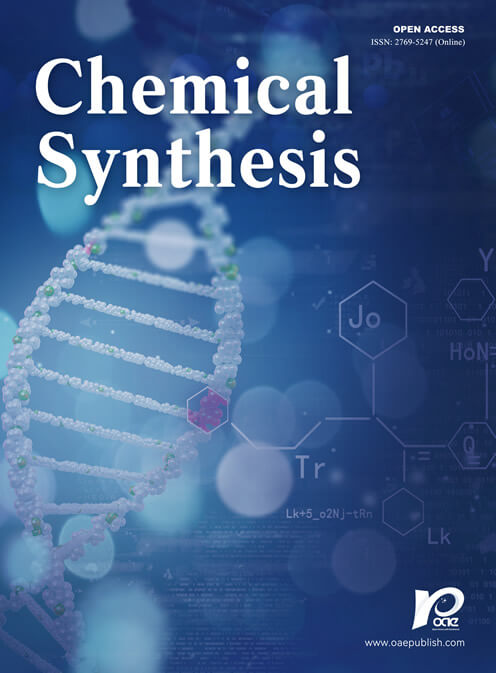

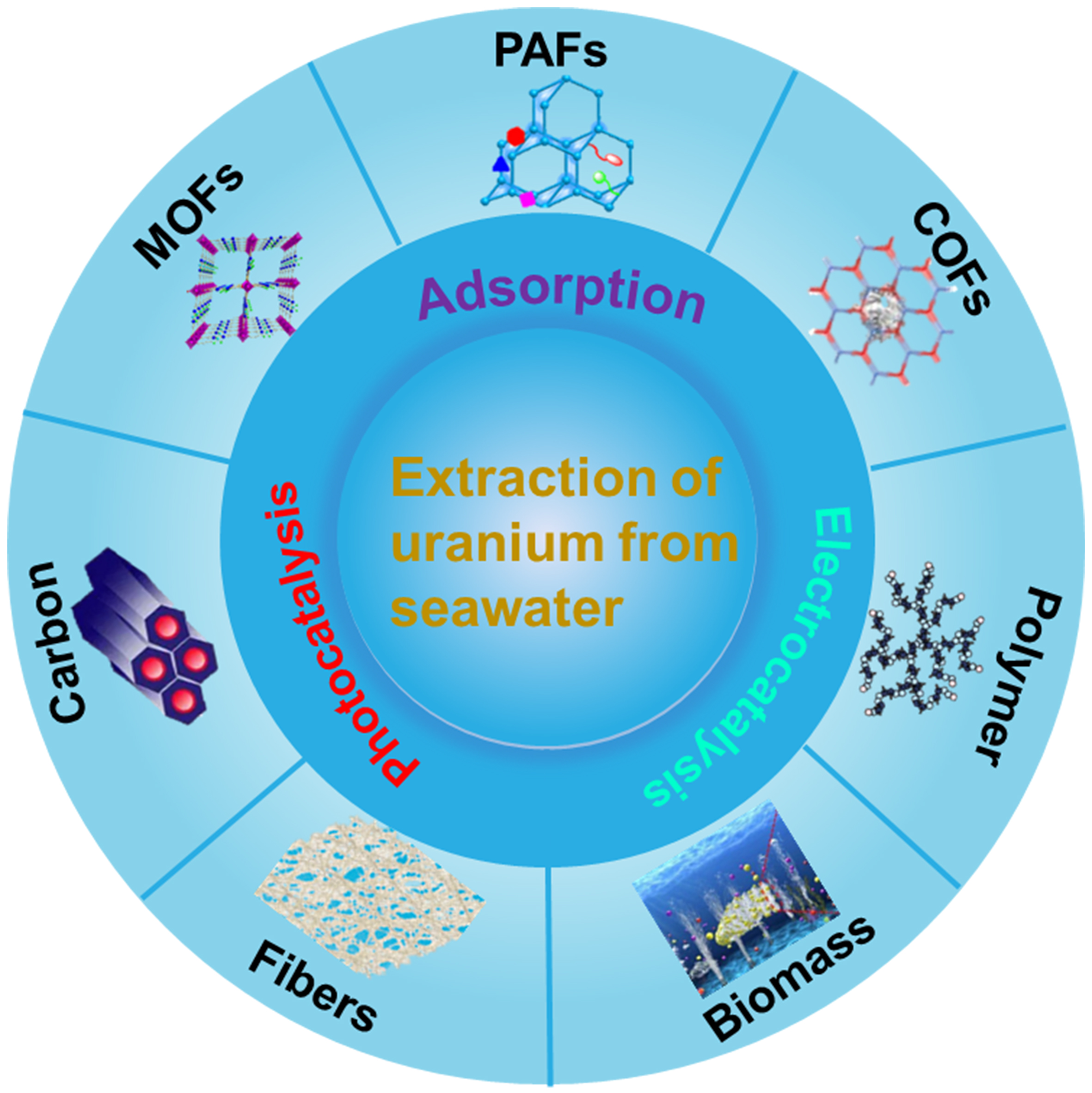
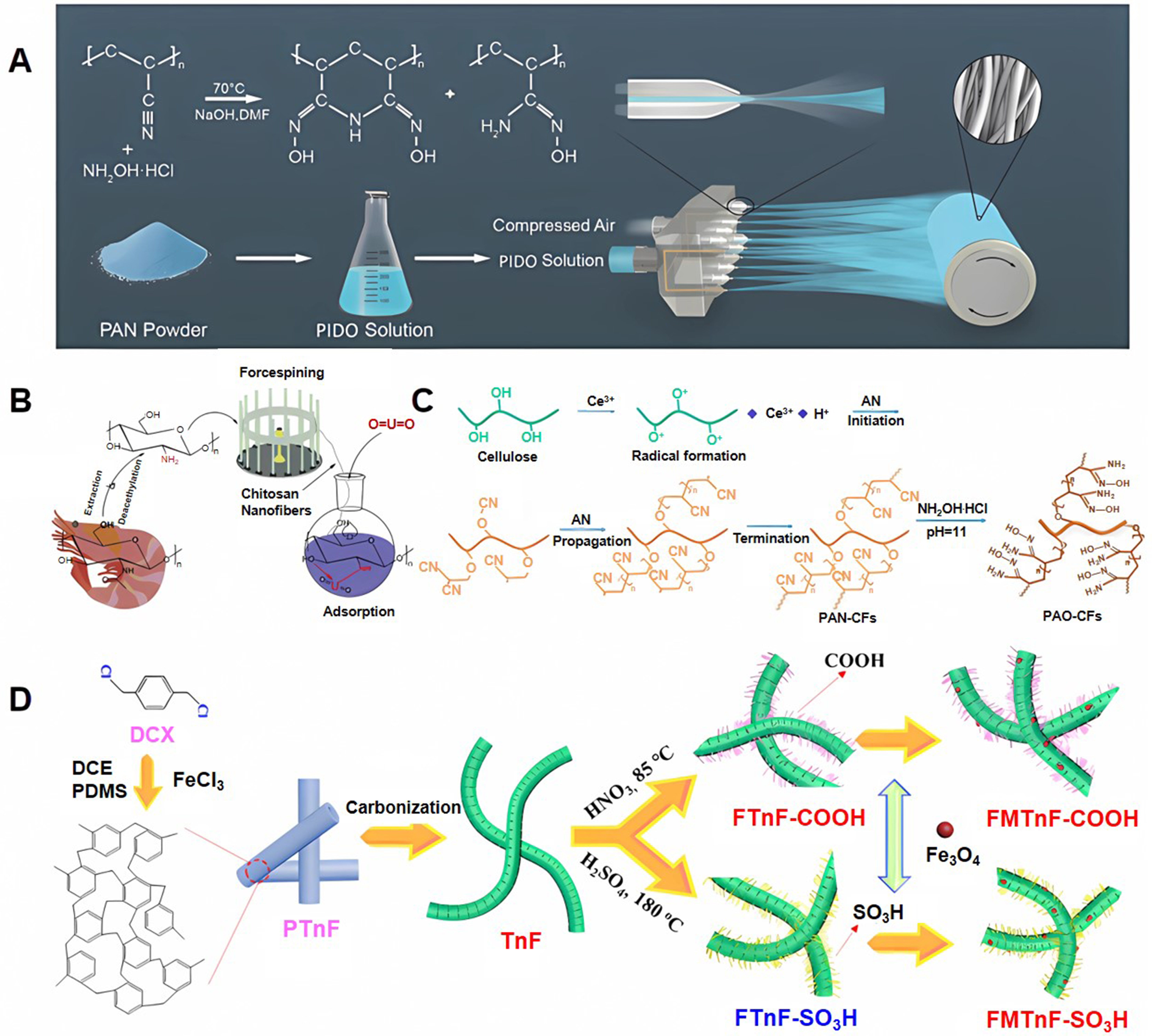
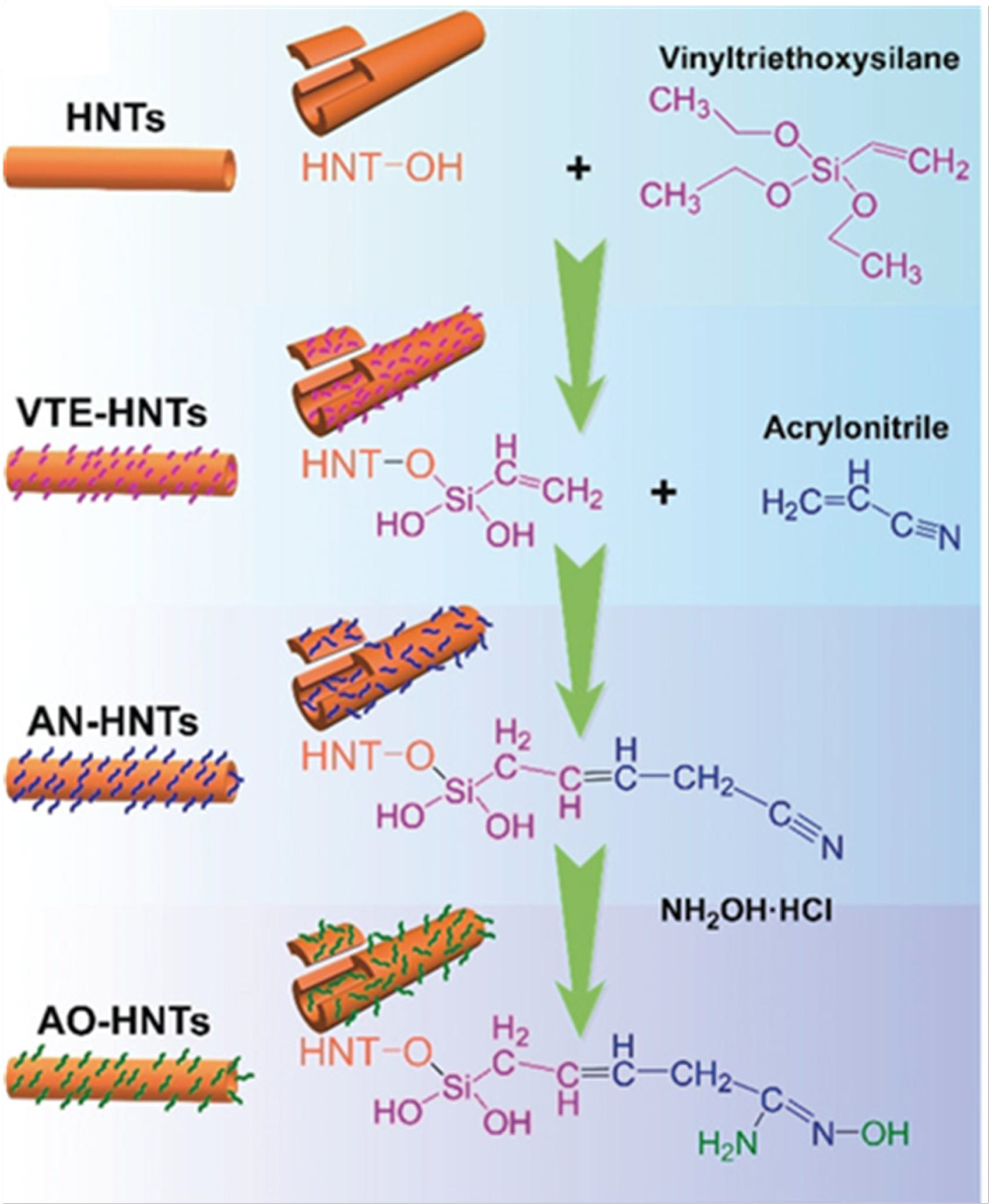
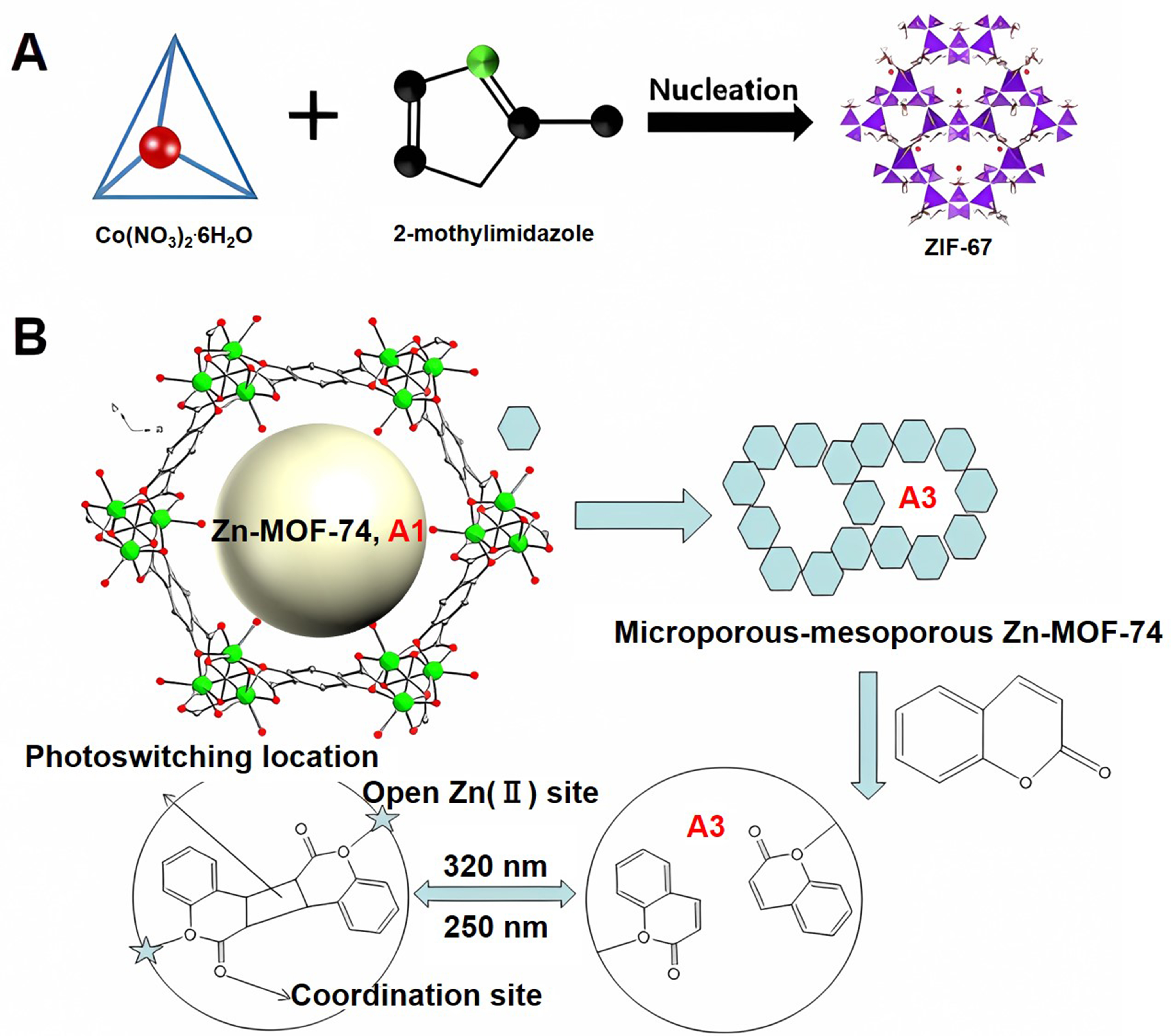
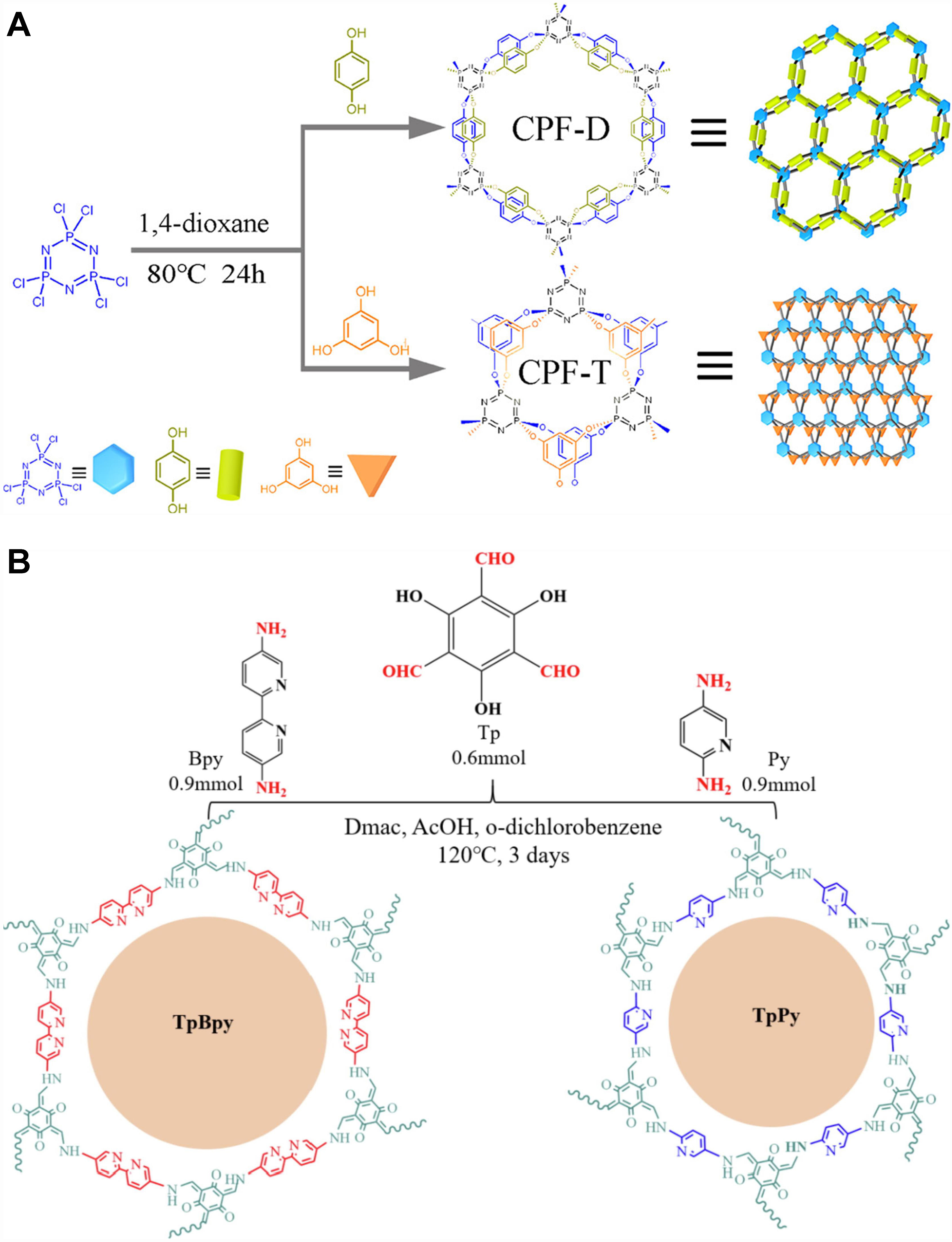
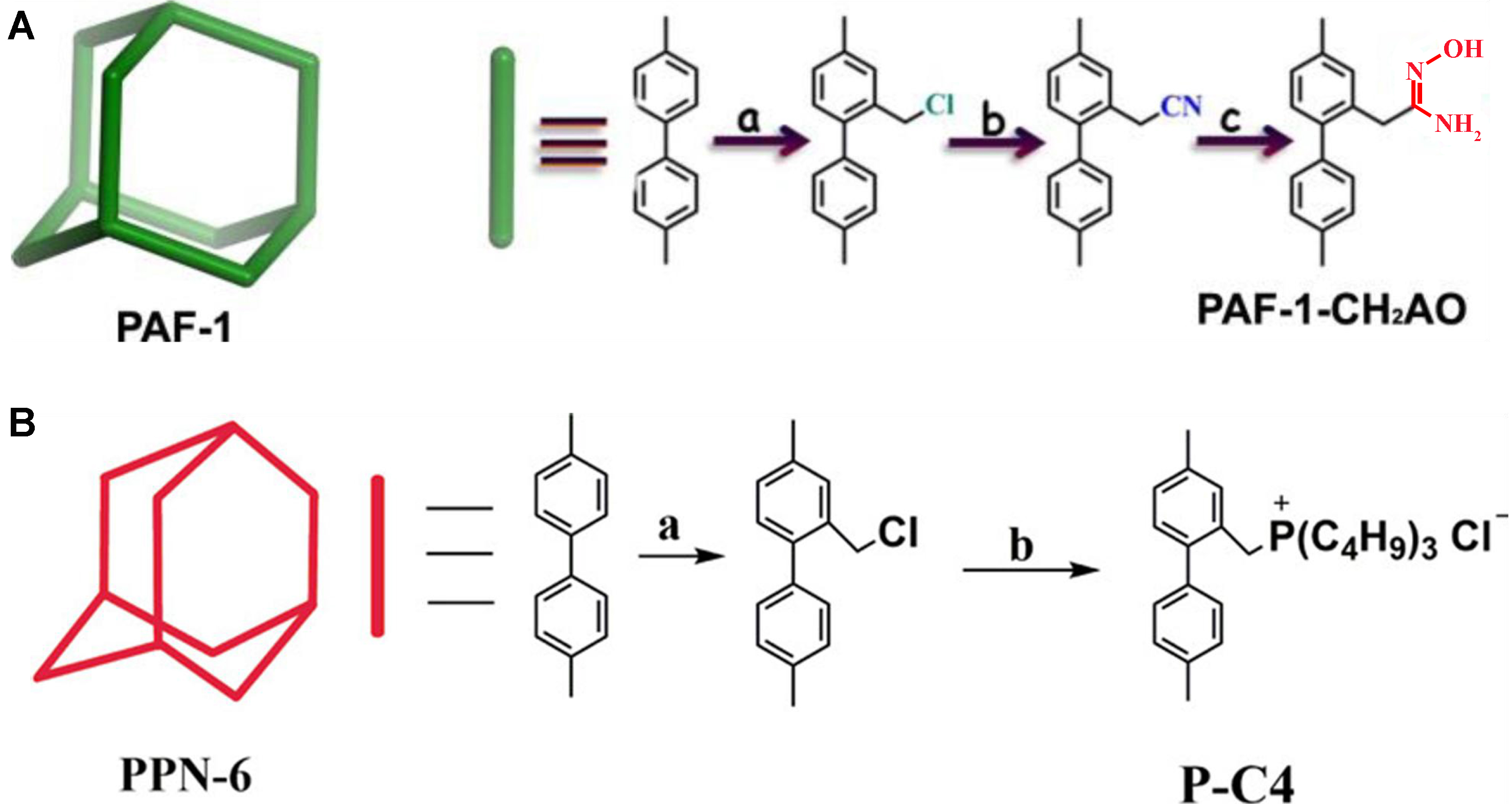
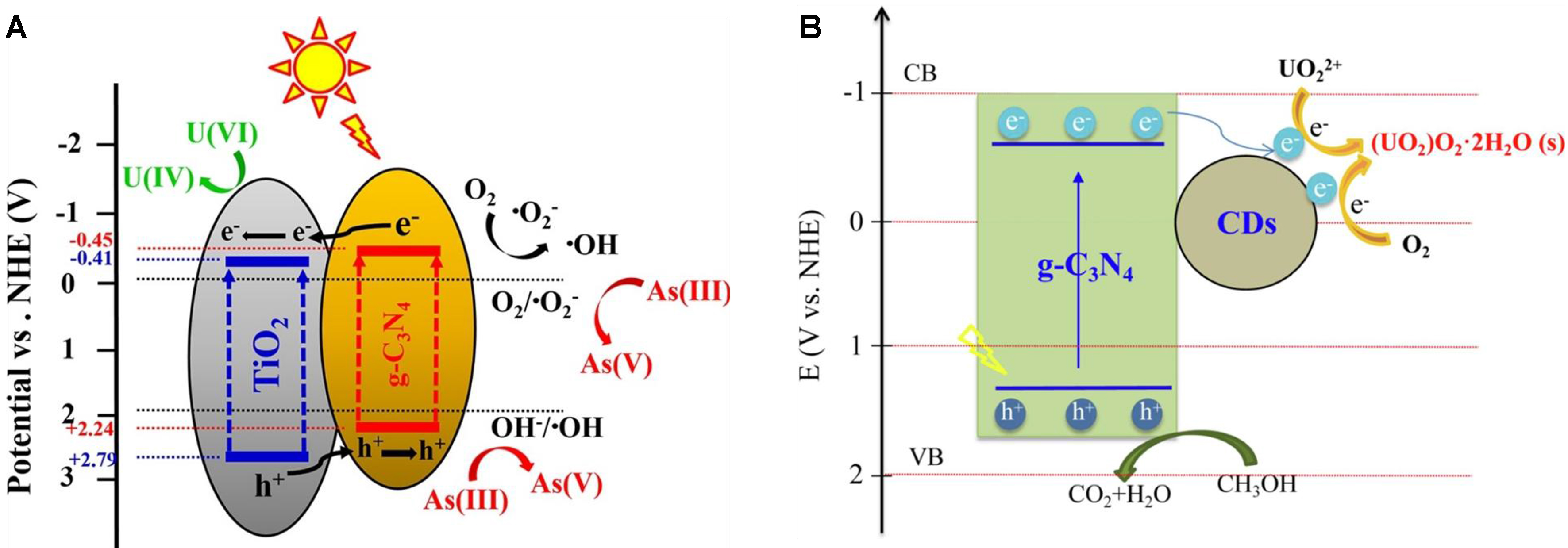
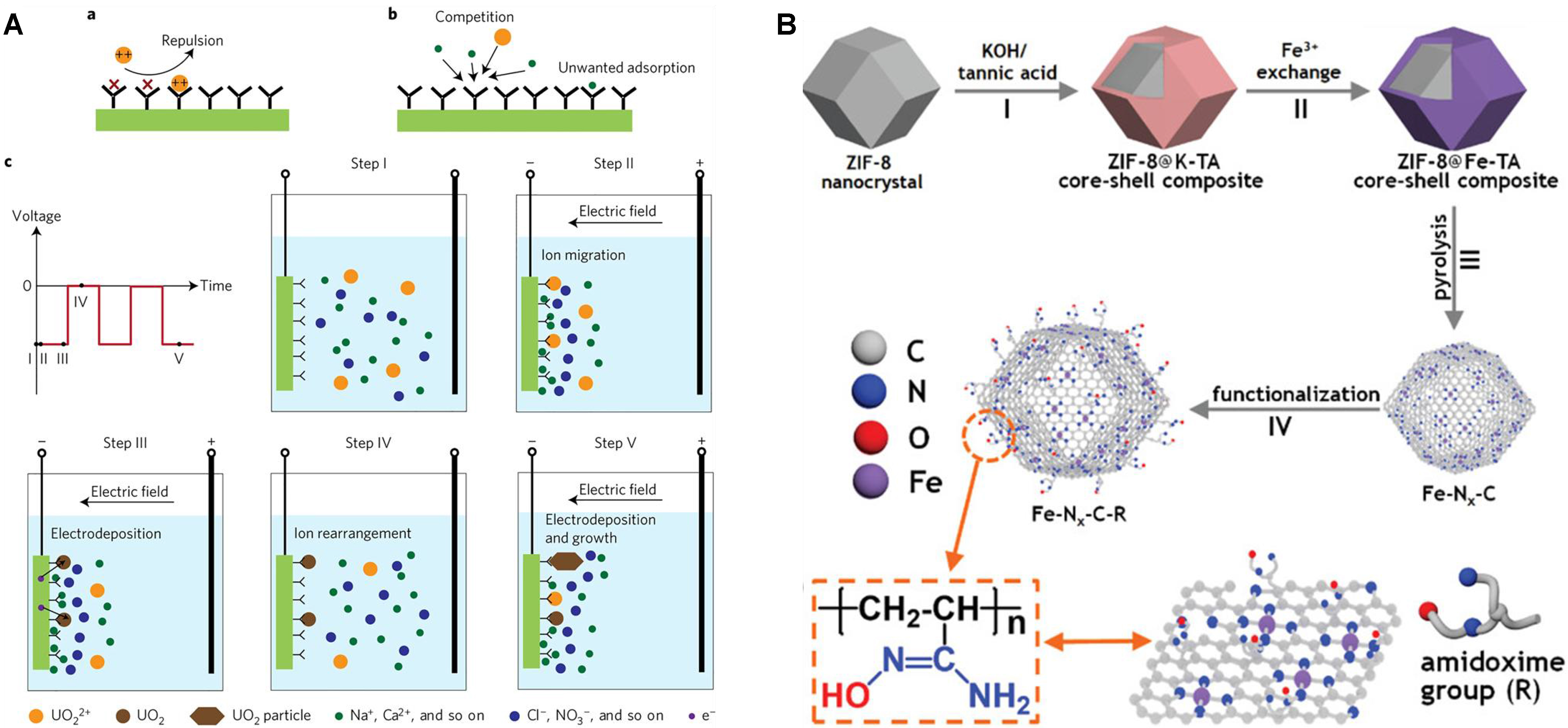








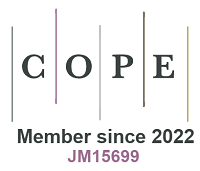




Comments
Comments must be written in English. Spam, offensive content, impersonation, and private information will not be permitted. If any comment is reported and identified as inappropriate content by OAE staff, the comment will be removed without notice. If you have any queries or need any help, please contact us at [email protected].